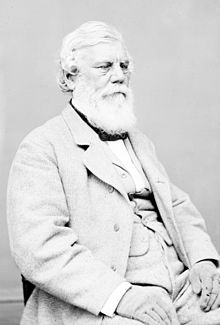William Aiken Jr. | |
|---|---|
 | |
| 61st Governor of South Carolina | |
| In office December 7, 1844 – December 8, 1846 | |
| Lieutenant | J. F. Ervin |
| Preceded by | James Henry Hammond |
| Succeeded by | David Johnson |
| Member of the U.S. House of Representatives from South Carolina | |
| In office March 4, 1851 – March 3, 1857 | |
| Preceded by | Isaac E. Holmes |
| Succeeded by | William P. Miles |
| Constituency | 6th district (1851–53) 2nd district (1853–57) |
| Member of the South Carolina Senate from St. Philip's and St. Michael's Parish | |
| In office November 28, 1842 – December 7, 1844 | |
| Member of the South Carolina House of Representatives from St. Philip's and St. Michael's Parish | |
| In office November 26, 1838 – November 28, 1842 | |
| Personal details | |
| Born | January 28, 1806 Charleston, South Carolina, US |
| Died | September 6, 1887 (aged 81) Flat Rock, North Carolina, US |
| Resting place | Magnolia Cemetery, Charleston, South Carolina |
| Political party | Democratic |
| Spouse |
Harriet Lowndes Aiken
(m. 1831) |
| Profession | businessman, planter |
William Aiken Jr. (January 28, 1806 – September 6, 1887) was the 61st governor of South Carolina, serving from 1844 to 1846. He also served in the state legislature and the United States House of Representatives, running unsuccessfully for speaker of the House in 1856 in "the longest and most contentious Speaker election in House history."
Aiken was one of the state's wealthiest citizens and a slave owner.[1] He owned one of the largest rice plantation in the state—Jehossee Island—with over 700 enslaved black people on 1,500 acres under cultivation, almost twice the acreage of the next largest plantation. By 1860, Aiken owned the entire Jehossee Island, and the plantation produced 1.5 million pounds of rice in addition to sweet potatoes and corn. After the American Civil War, the plantation regained its preeminence, producing 1.2 million pounds of rice. Descendants of the Aiken family, the Maybanks, still own part of the island, having sold the remainder in 1992 to the U.S. as part of the ACE Basin National Wildlife Refuge.[2]
- ^ "Congress slaveowners", The Washington Post, January 13, 2022, retrieved January 14, 2022
- ^ Scott, Thomas L. (December 23, 2014). "9 of the Biggest Slave Owners in American History". Atlanta Black Star. Retrieved May 16, 2019.